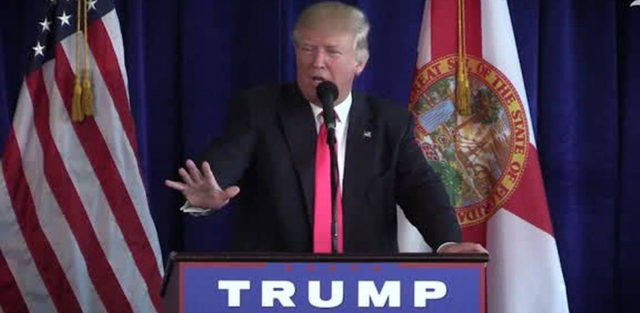It’s hardly treason, but Trump’s call for Russian hacking still encourages illegal actions

Despite speaking for more than an hour at a rally in Florida on July 27, media attention following the speech centered on just two sentences uttered by Republican presidential nominee Donald Trump. Leveraging widespread speculation that Russian hackers were responsible for the recently publicized attack of Democratic National Committee computer systems, Trump made an appeal directly to that nation: “Russia, if you’re listening, I hope you’re able to find the 30,000 emails that are missing,” an apparent reference to the email messages that Hillary Clinton determined to be personal and deleted from her private server before handing the server over to the State Department and the FBI. Trump continued, “I think you will probably be rewarded mightily by our press.” Reaction to Trump statements was swift and predominantly critical, from both Democrats and Republicans, with a general consensus that Trump was actively encouraging espionage by a foreign power against American information technology assets. Michael Inboden, a member of the National Security Council under former president George W. Bush, called Trump’s comments “tantamount to treason,” although most politicians and analysts chose not to go that far, instead emphasizing how inappropriate it would be for a foreign government to try to intervene in or influence a U.S. presidential election.
A brief examination of relevant laws codified in the United States Code suggests that Trump, assuming for the sake of argument that his statements were serious and not a joke, is at the very least encouraging action that violates U.S. law, because computer hacking generally (whether perpetrated by domestic or foreign actors) is illegal under 18 USC §1030, which says in relevant part that anyone who “intentionally accesses a computer without authorization or exceeds authorized access, and thereby obtains … information from any department or agency of the United States or information from any protected computer” may be subject to a fine or imprisonment of up to 10 years. It’s somewhat unfortunate that so many incensed observers chose to use the word espionage to characterize what Trump purportedly asked Russia to do, since under U.S. law (18 USC Chapter 37) that term only applies to defense information or to classified information, and at least according to Clinton, the deleted emails were personal in nature and did not contain any classified information (or, presumably, any information about matters of national defense). Michael Inboden also seems to have been overzealous in painting Trump’s words as treasonous, because acts of treason involve levying war against the United States (18 USC §2381), and it would be hard to characterize hacking emails as waging war. Still, it seems irresponsible to imply that any type of computer hacking or intrusion by Russia would be welcome, especially given the long history of alleged cyberattacks carried out by Russian nationals, whether or not they were working on behalf of the Russian government.
 SecurityArchitecture.com
SecurityArchitecture.com
